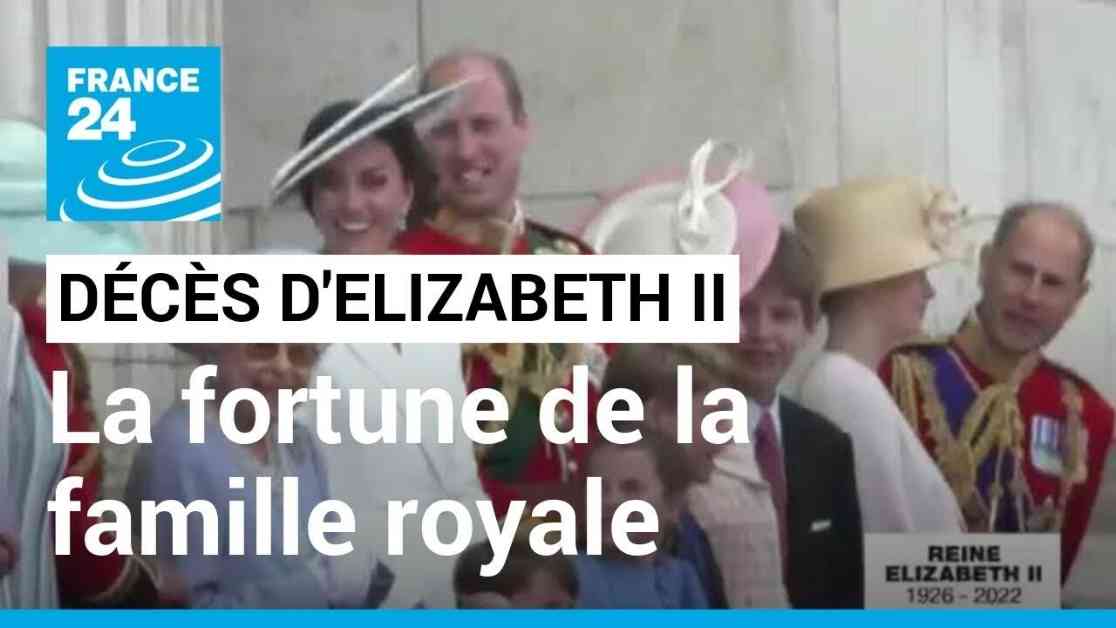Queen Elizabeth II’s Heritage Revealed: A Controversial Decision
In a surprising turn of events, the annual accounts of Buckingham Palace have unveiled a shocking revelation regarding Queen Elizabeth II’s inheritance plan. The report, released earlier this summer, disclosed that apart from Charles III, the other children of Queen Elizabeth II – Princess Anne, Prince Edward, and Prince Andrew – have intentionally been excluded from an estimated £380 million inheritance. This strategic move is believed to circumvent succession rights, as experts suggest.
The annual accounts of the Crown Estate, recently published, show an impressive profit of £1.1 billion. This financial performance will have a significant impact on the Sovereign Grant, as reported by express.co.uk on August 19, 2024. The Grant is set to increase from £86.3 million to £132 million for the year 2025-2026. This remarkable rise in the Crown Estate’s profits translates to an increase of over £45 million for the monarchy, marking a 53% surge in the official annual income, now exceeding £130 million.
Queen Elizabeth II: £380 Million Inheritance Transferred to Charles III
Queen Elizabeth II has left a fortune of £380 million to her children, according to experts. Princess Anne, Prince Edward, and Prince Andrew were unable to benefit from this fortune for a specific reason. King Charles III is technically the sole heir to Elizabeth II’s immense wealth.
The late Queen’s children, with the exception of King Charles III – Princess Anne, Prince Edward, and Prince Andrew – did not receive a share of the £380 million inheritance. In fact, the entire fortune was directly transferred to King Charles III. If the inheritance had been divided among Elizabeth II’s children, they would have been liable to pay substantial inheritance taxes. By consolidating the inheritance in the hands of King Charles III, the transfer avoided these heavy tax burdens.
Credit photo: Bestimage
Elizabeth II’s inheritance, estimated at £380 million, was exclusively transferred to Charles III.
Queen Elizabeth II: Her Children Avoided Inheritance Tax
Experts have explained, as reported by express.co.uk, that Queen Elizabeth II’s children were unable to benefit from her fortune to avoid paying inheritance tax. This succession tax clause was introduced in 1993 by the government of Sir John Major.
The clause states, among other things, that any « transfer of assets from a sovereign to their successor » allows for the avoidance of the 40% tax applied to assets valued over £325,000. The adoption of this clause at the time aimed to « prevent the dilution of the Crown’s wealth and ensure the continuity of the monarchy’s operations, » as explained by express.co.uk.
The decision to exclude Princess Anne, Prince Edward, and Prince Andrew from Queen Elizabeth II’s inheritance has sparked controversy and raised questions about the monarchy’s financial management. While some argue that it was a strategic move to preserve the Crown’s wealth and streamline the succession process, others view it as unfair and unjust to the Queen’s other children.
The Impact on the Monarchy and Succession
The revelation of Queen Elizabeth II’s inheritance plan has significant implications for the monarchy and the future of the British royal family. With King Charles III set to inherit the entirety of his mother’s £380 million fortune, questions arise about the distribution of wealth within the royal family and the implications for succession.
The decision to bypass Princess Anne, Prince Edward, and Prince Andrew in favor of King Charles III has raised eyebrows among royal experts and the public alike. While some argue that it ensures a smooth transition of wealth and power within the monarchy, others criticize it as favoritism and exclusion of certain family members.
The inheritance tax loophole that allowed Queen Elizabeth II to transfer her wealth to her successor without incurring hefty taxes has also come under scrutiny. Critics argue that such tax avoidance measures undermine the principles of fairness and equality, especially within the royal family where wealth and privilege already play a significant role.
Overall, the revelations surrounding Queen Elizabeth II’s heritage have shed light on the complexities of royal finances and the intricacies of succession planning within the British monarchy. As the Crown Estate’s profits continue to soar, the implications of these financial decisions on the future of the monarchy remain to be seen.

